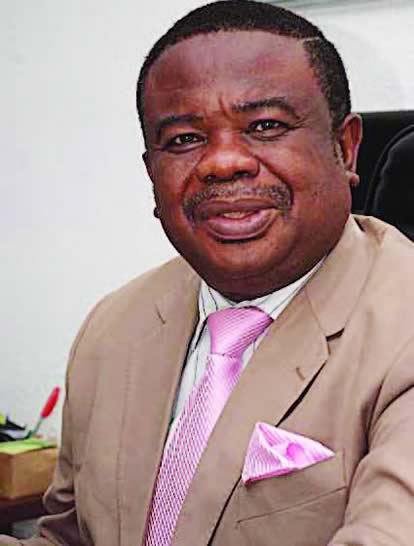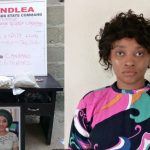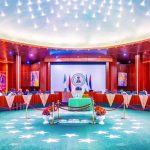...To get all news updates, Join our WhatsApp Group (Click Here)
Also Join our WhatsApp Channel (Click Here)
Chief Tony Okoroji, former President of PMAN and Chairman, Copyright Society of Nigeria (COSON), Nigeria’s biggest copyright collective management organization, has called on creatives across Nigeria to become generals and foot soldiers in the battle to rid Nigeria of the rot of corruption and bad leadership.
In a blockbuster 2024 “No Music Day” broadcast streamed simultaneously on several media platforms this Sunday, September 1, 2024, Chief Okoroji said: “To my friends and colleagues in the creative industry, we can no longer hide our heads in the sand and pretend that the battle to wipe out corruption in Nigeria, and enthrone good governance, does not concern us.
“If we have accepted to live with the rot that we see everywhere in Nigeria, we must ask ourselves if it is in this rot that we want our children and grandchildren to grow up.
“So, today, on this “No Music Day” I call on everyone in the Nigerian creative family to become generals and foot soldiers in the battle to rid Nigeria of the rot of corruption and bad leadership. We must deploy our voices, our writings, our movies, skits and drama to lead the war so that when the story is told, it would be clear that we did not run from our responsibilities.
“But, if we are coming to justice, we must come with clean hands. If we are going to fight corruption, we must be sure that we are not corrupt ourselves. If we are fighting bad leadership, we have to be absolutely sure that we are not providing bad leadership ourselves. In other words, we must practice what we preach.
“So, I call on all the organizations in the creative industry to show good examples in the way we operate. Our organizations must be…I say… must be transparent and accountable. I state that no one should assume the leadership of any of our creative industry organizations without an open and clear mandate of the members from a free and fair elections conducted according the rules and constitution of the organization. In each of our organizations, the abiding object must be to uphold and fight for the interest of our members and not the hijacking of the instruments of the organization for the personal enrichment of the leaders. Let me repeat. We must practice what we preach”.
In the broadcast, Chief Okoroji said that the rampant infringement of the intellectual property rights of songwriters, composers, performers, music publishers, record labels and other stakeholders in Nigeria’s creative industry does not stand on its own but is part of a national malaise and a penchant in Nigeria for reaping where people did not sow which he alleged has exposed Nigerians to the free for all looting of the nation’s resources and left Nigerians with a comatose economy with millions of her citizens hungry, desperate and suffering in the midst of plenty.
Said Okoroji: “Sad as it may sound, many have concluded that there is no hope for Nigeria. Some even say that there must be something wrong with our genes.
“I say No! No! The truth is that nothing is wrong with our genes. While our politicians and so-called leaders, with their take-everything and give-nothing-in-return mentality, have left millions of Nigerians with devastating hunger, joblessness and unknown gunmen everywhere, several young Nigerians are flexing their muscles in different parts of the world and soaring in diverse fields.
“Asake, Burna Boy, Tiwa Savage, Flavour and many more are taking what is today called afro beats to the world and filling huge venues with rapturous fans paying pounds and dollars to see them. Bukayo Saka, the Arsenal player, who now wears the shirt of the English national football team, has Nigerian genes. Victor Osimhen who has been a top scorer in the very competitive Italian Football League is a full-blooded Nigerian. Tobi Amusan who may not have won any medal at the Paris Olympics, but still holds the World Record in 100 meters Hurdles, is a Nigerian. Wole Soyinka, the Nobel laureate in Literature, is a Nigerian citizen. The internationally respected, master story teller, Chinua Achebe, was born and died a Nigerian. You might say that Achebe belongs to another generation, maybe. But the renowned writer, Chimamanda Ngozi Adichie, who is relatively young, is a Nigerian”.
In conclusion, the life long advocate for the rights of creative people said: “I very much recognize the deep despair in the land, the hunger that threatens the life of millions of Nigerians, the insecurity that has snatched the lives of so many of our countrymen and the anguish under which many Nigerians wake up in the morning and go to bed at night.
“Nigerian creatives cannot afford to give up. We must work together for the unity of our country and the progress of our nation. We must contribute to making Nigeria a nation in which people do not brazenly reap where they did not sow and comfortably steal what does not belong to them and amass wealth which they have not earned.
“On this “No Music Day 2024”, I pray for all Nigerians who are going through trials, tribulations and hardship and beg the Almighty to please meet their needs. God bless the Nigerian Creative Industry and God bless the great people of Nigeria”.
On September 1, 2009, practitioners in the entire Nigerian creative family massed in front of the National Theatre in Lagos and for days, refused to eat or drink and demanded that the over 400 licensed broadcast stations in the country, who use music as the key raw material for their operations, should broadcast no music for a significant period of that day. So began what the creative industry has celebrated every September 1 as “No Music Day”.
*Watch the No Music Day 2024 Official Broadcast by COSON Chairman, Chief Tony Okoroji on behalf of the Nigeria music industry.* Click link to watch: https://youtu.be/OC_ChF54UaA?
You can get every of our news as soon as they drop on WhatsApp ...To get all news updates, Join our WhatsApp Group (Click Here)
Also Join our WhatsApp Channel (Click Here)

















